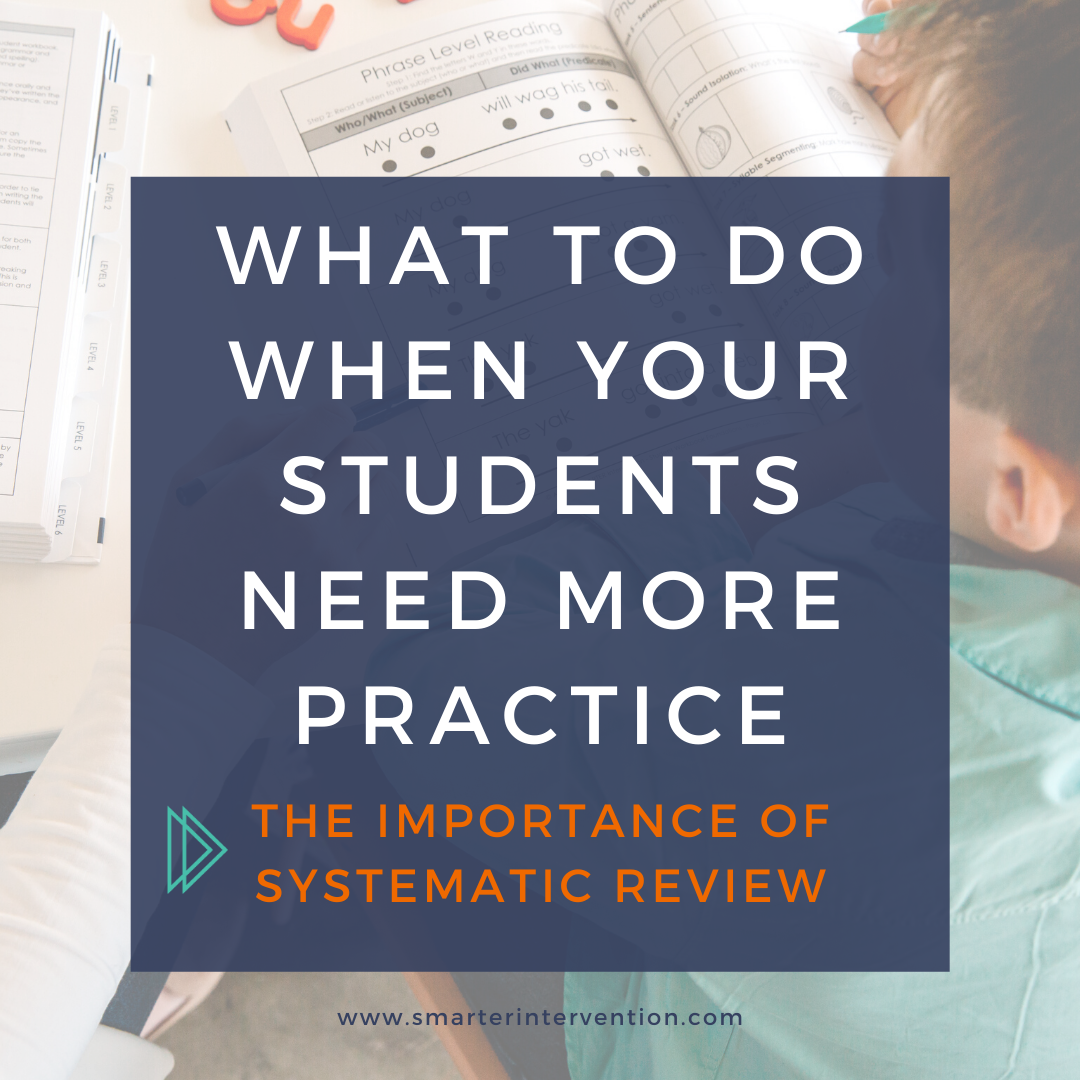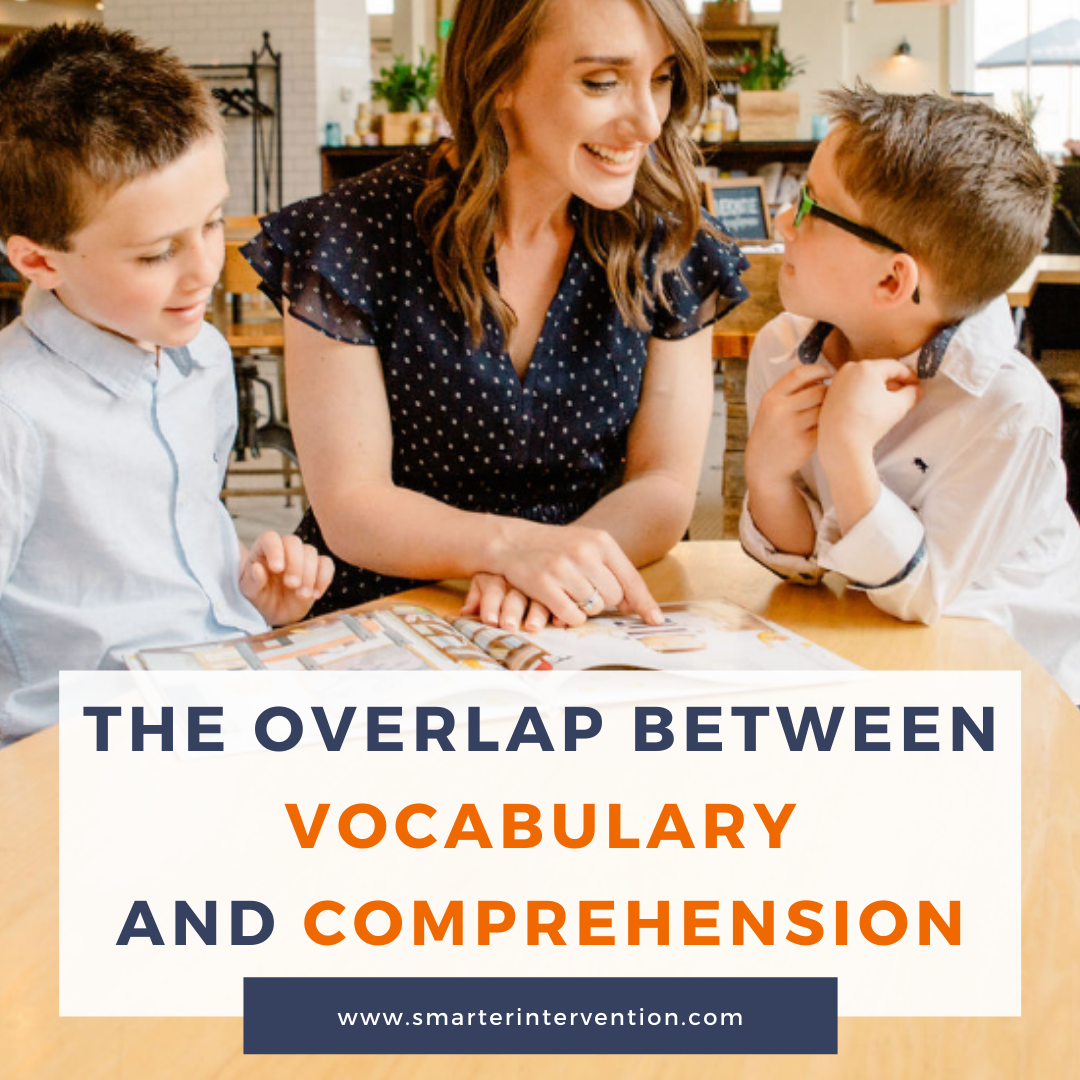Science-based literacy resources and articles
for families, educators and schools
Search by Category:
Categories
- Advocacy
- Authentic Literature
- Business
- Comprehension
- Data Tracking
- Differentiation
- Dyslexia
- Evaluation and Assessment
- Executive Functioning
- Games & Activities
- Helping My Child At Home
- How To
- IEP/504 Plan
- Lesson Planning
- Math
- Online Intervention
- Organization
- Parents
- Phonics
- Phonological Awareness
- Reading Comprehension
- Reading Fluency
- Research
- SLP
- Spelling
- Vocabulary
- Writing
How to Create SOR-Aligned Lesson Plans for 3rd & 4th Grade Using Your Students Favorite Books
You may have heard that 3rd grade is the year where students transition from learning to read to reading to learn. But how exactly do we support that transition for students who are still working on the foundations?
Today, we’re sharing about how you can use your students’ favorite books to create evidence-based lesson plans that align with the Science of Reading so that your 3rd and 4th graders can begin to generalize those foundational skills to higher-level reading.
How To Use Your Students’ Interests to Improve Their Literacy Skills
Raise your hand if you've ever been told that your literacy instruction is boring. 🙋♀️ If you're raising your hand - you're definitely not alone.
It can be difficult to teach these skills to students in a way that feels engaging and exciting because let's face it - the skills that we have to teach aren't very exciting. Luckily, there is a solution.
By putting lessons together in a way that focuses on students' interests, you can absolutely change the game in your literacy instruction. Keep reading to learn our step-by-step process for putting these lessons together.
Why are Math Word Problems So Difficult for Students?
Why are math word problems so difficult for so many of our students? That IS the question!
WORD PROBLEMS REQUIRE A NUMBER OF CRITICAL LITERACY AND EXECUTIVE FUNCTIONING SKILLS
(which we talk about often!)
So let’s start by thinking through all the skills students need in order to solve math problems effectively.
Should I Teach Sentence Segmenting?
Phonological awareness skills are often taught to support reading and spelling. But…did you know that some PA skills can directly support reading comprehension as well?
Discover how sentence segmenting enhances literacy skills beyond spelling and reading. Learn how to improve memory, comprehension, and writing structure.
How Do I Fit It All In? Organizing Your Literacy Block to Align with the Science of Reading
Following the Science of Reading requires many lesson components we should be including in our literacy instruction.
Between explicitly teaching the 5 Core Components of Literacy, targeting student needs, tracking data, and pulling review activities - it can definitely feel like a lot!
But here’s the thing, research-based instruction that aligns with the Science of Reading does not have to be hard. All you need is a clear framework you can use to plan your lessons in alignment with research-based principles so that you know you are covering everything you need without it feeling super overwhelming!
How to Use SOR to Build Students’ Comprehension Skills
In order to be a successful reader, students have to be able to understand what they are reading - not just sound out the words. Keep reading to learn how to use SOR to support students that struggle with comprehension.
How to Build Fluency & Comprehension at the Passage Level
When working with students, our end goal is always that they can functionally read and write. A big part of this is the ability to read at the passage level and derive meaning from the text.
Luckily - building fluency and comprehension at the passage level doesn’t have to be hard. Keep reading to learn how you can incorporate this instruction into your reading lessons!
How to Build Fluency & Comprehension with Sentence Reading
There are a lot of misconceptions when it comes to reading fluency and comprehension, including the fact that it is difficult to support, means that students need to be reading faster, and is reserved for when they can read at the passage level. Today - we are breaking down these misconceptions and discussing how you can use sentence-reading to help build your students’ fluency & comprehension skills!
How to Fit Vocabulary in to Your Reading & Writing Lessons
Vocabulary instruction is necessary in order for phonics to matter. Keep reading to learn how you can easily & effectively incorporate vocabulary instruction into your reading & writing lessons.
How to Get the Most Out of Your Literacy Lessons
Have you ever thought to yourself - “How in the world am I EVER going to fit everything into my lessons?!” or maybe, “How can I better support my students?”
We certainly have!
The great news - we can actually make our interventions lessons MORE effective WITHOUT adding a ton of additional time. Keep reading to learn how!
How To Explicitly Teach Phonics Rules
It’s no secret that research tells us we need to teach rules explicitly - but what exactly does that mean?
Today, we are going to break down exactly what “teaching rules explicitly” means as well as walk you through how you can use this approach in your lessons!
What To Do When Your Students Need More Practice: The Importance of Systematic Review
Have you ever looked through your students’ lesson data and thought - “gosh, they just aren’t getting this?”
We’ve all been there. Today - we are going to break down what you can do when students need more practice and the importance of systematically reviewing previously learned concepts.
How to Teach Reading Comprehension using a Research-Based Approach
Now if you’re like us and you’re obsessed with the science of reading, you may already know that there is a very systematic and structure in which you can teach phonics to help give struggling and beginning readers the tools they need to be successful (and hey - no shame if not, you can check out our phonics blog too). But, did you know there is also really clear set of reading comprehension skills that students need to be successful comprehenders?!
The Overlap Between Vocabulary and Comprehension
So often, my students struggle with the main idea and key details because they are either WAY too broad, WAY too specific, or start talking in the longest run-on sentence trying to tell me every last detail about the passage they can squeeze in.
Recently, I have found that it has actually been a vocabulary activity that has allowed me to explicitly teach them how the ideas in the stories and passages we read come together to form the main idea and key details.
Where Do Students Need Explicit Instruction?
Students struggle for different reasons and in different capacities. In order to truly support our struggling readers, we must not only understand why students are struggling but also -
Where are students struggling to read specifically?
Which specific areas are causing students to be ineffective readers? Because the bottom line is if we are trying to support struggling readers, we need to stop applying one-size-fits-all approaches and we need to know what type of support is needed to get our struggling readers on track. Keep reading to learn more!
All About Graphic Organizers
Graphic organizers are visual displays and incredible tools to help your students with writing and comprehension. Graphic organizers can also be called mind maps, concept maps, or concept webs, but they all have the same wonderful purpose - to solidify comprehension. Graphic organizers explicitly teach students how to connect and organize information. They visually show what information to prioritize as well as help students with brainstorming and connecting any background information.
What Students Need for Effective Comprehension & Writing in the Classroom
Today, we’re diving right into a pretty loaded topic! We wanted to start the conversation around what students need in order to effectively comprehend lessons in the classroom and what they need to be able to write effectively to demonstrate their knowledge.
Now obviously, this isn’t something we can fully communicate/solve in a single blog post. But … we do have a really good starting point! And, don’t worry, we also have some really good follow-up coming your way!
Reading Comprehension: Finding the Main Idea, Details, and Summarizing
Just because a student’s decoding becomes more accurate and their fluency (reading speed & accuracy combined) improves does not mean that the child will magically understand everything they are reading. Read on to see how you can support reading comprehension skills for your students.



















